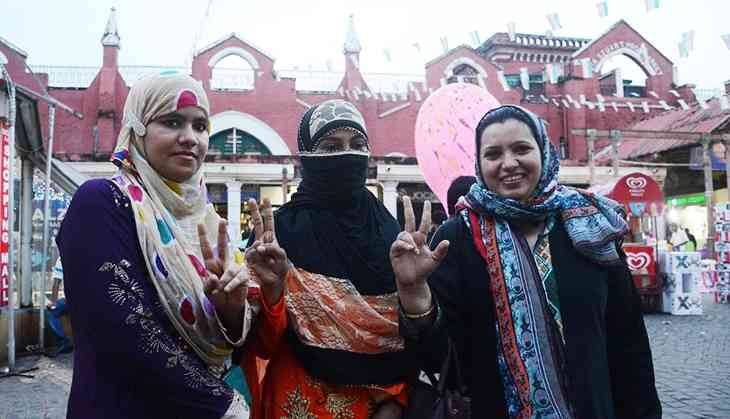There are a few factual errors in CJI Khehar's triple talaq verdict. Read them here

Have we become a sloppy people? This thought came to me as I spotted some factual inaccuracies in Part-5 of Chief Justice of India JS Khehar’s minority judgment in the triple talaq case.
Part-5 deals with the “abrogation of the practice of ‘talaq-e-bidat’," by legislation, the world over, in Islamic, as well as, "non-Islamic” countries. Here, Justice S Abdul Nazeer has concurred with the Chief Justice.
Let me concede straight away that these inaccuracies do not impact the conclusions reached in the Chief Justice’s opinion.
Hence, to some they may not be a big deal, but the question is should not the Chief Justice ensure that no factual error, howsoever inconsequential, creep into a judgement recorded by him? This is even if he has relied on a book which is well regarded on the subject.
Paragraph 28 of the judgment gives reasons for the Chief Justice to ascertain how countries with Muslim majorities have dealt with the issue of divorce among Muslims.
The Chief Justice notes: “Muslim Law in India and Abroad, by Tahir Mahmood and Saif Mahmood (Universal Law Publishing Co. Pvt. Ltd., New Delhi, 2012 edition), records the following position about the abrogation of the practice of ‘talaq-e-biddat’ as a means of divorce, through statutory enactments, the world over. The countries which have abolished ‘talaq-e-biddat’ have been divided into Arab States, Southeast Asian States, and Subcontinental States. We have maintained the above classifications, in order to establish their factual positions. Firstly, to demonstrate that the practice was prevalent across the globe in States having sizeable Muslim populations. And secondly, that the practice has been done away with, by way of legislation, in the countries referred to below.”
In all the divorce laws of 13 Arab, three Southeast Asian and three South Asian countries have been surveyed. Before the Chief Justice sets out what the divorce laws for Muslims in these countries are, he categorises them as theocratic or secular.
Herein lies the difficulty. Some countries put in the secular category are not so. These are listed below:
Egypt
Article 2 of the Egyptian Constitution states, “Islam is the religion of the state ...The principles of the Islamic Sharia are the principle source of legislation”.
This obviously excludes Egypt from the category of secular countries. However, Egypt has always tried to present a progressive face to the world. The constitution allows Egyptian Christians (around 10% of the population) and Jews to be governed by their own laws regarding their personal status and religious affairs. The constitution also forbids the state to discriminate on religious grounds.
Jordan
Islam is the religion of the Jordanian state (Article 2) though, as in Egypt, the Jordanian constitution prescribes that all Jordanians will be equal before the law. The constitution also “safeguard(s) the free exercise of worship and religious rites in accordance with the customs observed in the Kingdom”. The caveat will naturally rule out any form of worship that will be offensive to Islam as observed in Jordan. All in all Jordan cannot be considered as a secular country.
Syria
Article 3 of the constitution makes it essential for the Syrian President to be a Muslim and also states, “Islamic Jurisprudence is the main source of legislation. Syria is in the midst of a civil war but the Syrian Baath Party which controlled the country for decades emphasised its progressive socialist and ‘secular’ credentials. However, the constitution does not make Syria secular.
Indonesia
The Chief Justice wisely avoids giving either a secular or a theocratic label to Indonesia. He mentions that it recognises six religious persuasions including Hinduism and Buddhism. The fact is that Indonesia has always witnessed tension between those who want it to become Islamic and those who want to preserve its foundational principles encapsulated in Pancasila. Even here the first is belief in one and only God. This imparts a religious tenor to the country removing it from the category of secular states.
In the case of the United Arab Emirates, a basic error has come in stating that the majority of its people are Shia. They are Sunnis. Was the Chief Justice thinking of Bahrain which has Shia majority?
---------
If the Chief Justice has gone by the account given in Tahir Mahmood and Saif Mahmood’s book to categorise countries as secular or theocratic and that book has erred, can these accuracies be only attributed to that book? Clearly the answer has to be in the negative for it has to be presumed that the Chief Justice has verified the facts contained in it. The public take Supreme Court judgements as authoritative and fact checked.
The former law minister Ashwini Kumar hailing the Supreme Court decision declaring privacy to be a fundamental right told a TV channel, “Indian constitutional jurisprudence is cited in many countries of the world”.
It would not put the Indian judiciary in good light if simple factual errors, even if they are a few, are found contained in a Chief Justice’s opinion.

